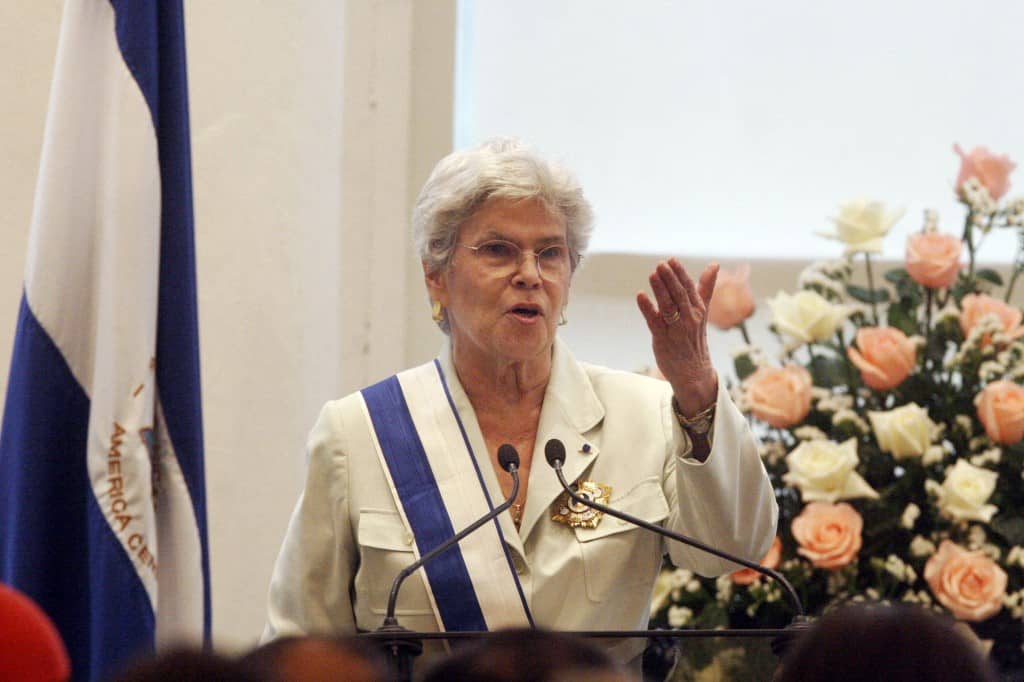Former Nicaraguan president Violeta Barrios de Chamorro, afflicted by health problems and who turns 94 on Wednesday, was transferred on Tuesday from Managua to Costa Rica, where two of her four children, opponents of Daniel Ortega’s government, live in exile.
“From now on, Mrs. Violeta will settle in San José, under the care and love of her family, with the support of health personnel and specialized doctors,” the family said in a statement, without giving further details.
Barrios de Chamorro, the first woman to govern Nicaragua (1990-1997) after defeating Ortega, then the presidential candidate running for reelection, at the polls, has been away from public life due to complications derived from Alzheimer’s disease and a cerebral embolism she suffered in 2018.
“We deeply appreciate the doctors, health personnel, and service workers who cared for her well-being in Nicaragua all these years, and all the people who always accompany her with their prayers and remain aware of her state of health, which continues to be delicate but stable,” the statement emphasized.
After the stroke, Barrios de Chamorro remained at her residence in Las Palmas, Managua, where she lives with Claudia Chamorro, one of the four children she had with journalist Pedro Joaquín Chamorro, who was the director and owner of the newspaper La Prensa when he was murdered during the dictatorship of Anastasio Somoza in 1978.
Two of her children, former minister Pedro Joaquín and journalist Cristiana Chamorro Barrios, who intended to run against Ortega in the 2021 elections, were arrested that year and later released and exiled in February of this year.
Another of her children, journalist Carlos Fernando Chamorro, director of the digital media Confidencial, went into exile in Costa Rica in 2021. Cristiana also lives in that country and Pedro Joaquín in the United States.
Ortega returned to power in 2007 and has been successively re-elected in elections questioned by the opposition.
Strong protests in 2018 against Ortega’s government, which lasted for at least three months with roadblocks and clashes between opponents and officials, left more than 300 dead, according to the UN.
The government considered the protests an attempted coup promoted by the United States, while international organizations accused the government of repressing the opposition.
The United States and the European Union maintain sanctions against Nicaragua’s government for its measures against opponents, such as expatriation, deprivation of nationality, banning of more than 3,000 NGOs, among others.






